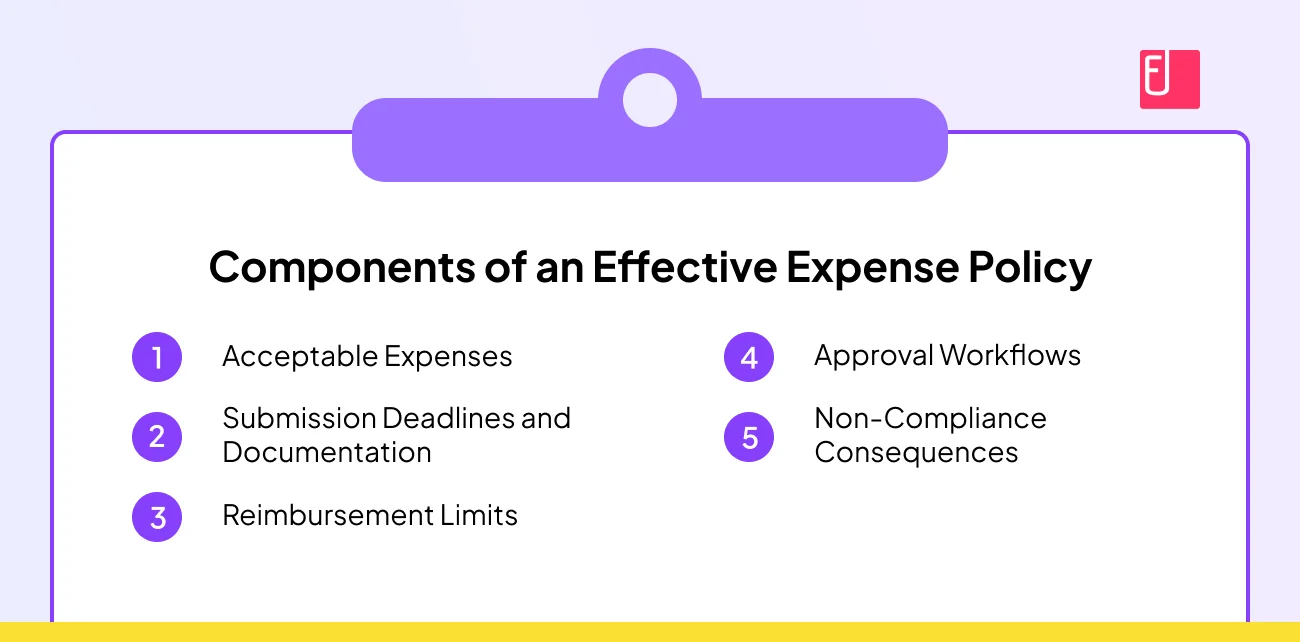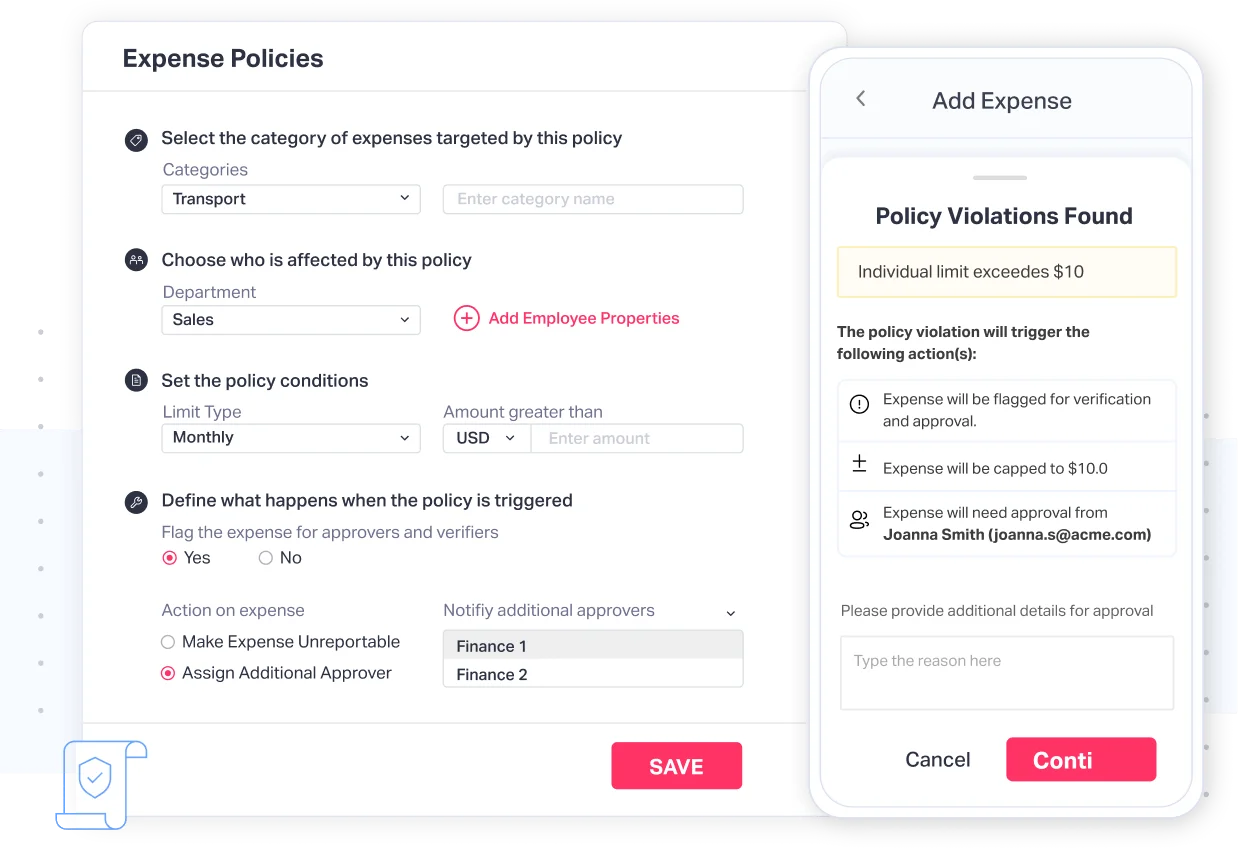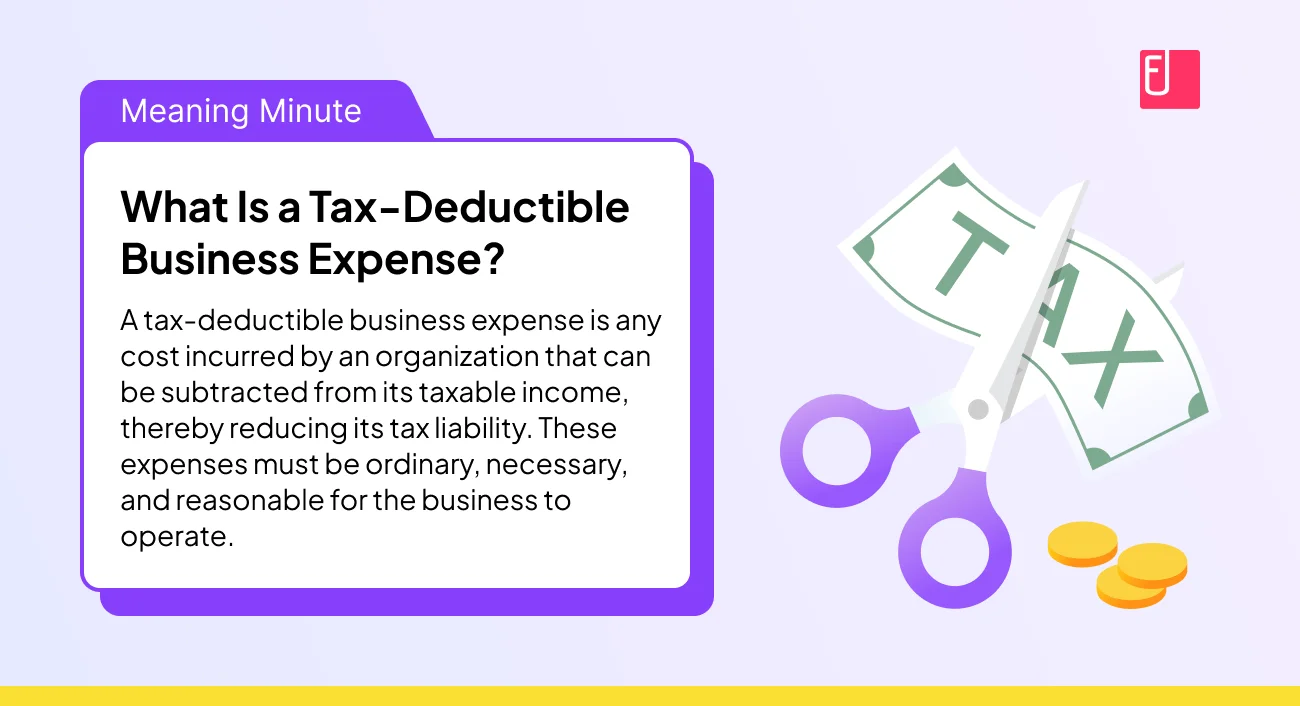Managing travel and expense (T&E) costs can become a significant challenge for businesses, especially as they scale. A well-defined travel and expense policy helps streamline these processes, ensures compliance, and reduces the risk of fraudulent claims.
In this guide, we’ll explain in six simple steps how to craft and implement an effective T&E policy, ensuring your business stays efficient and compliant.
What is a Travel and Expense (T&E) Policy?
A travel and expense policy is a set of guidelines established by a company to control, manage, and track all expenses related to business travel. This policy defines what constitutes an allowable expense, how to submit claims, and the approval process involved.
Having a T&E policy ensures that employees understand what is expected of them when traveling on business trips and keeps costs within budget.
The Components of a T&E Policy

When crafting a T&E policy, it’s essential to include the following components:
- Travel Expense Categories: Define the types of expenses employees can claim, such as airfare, lodging, meals, and ground transportation.
- Per Diem Rates and Allowances: Outline the daily meal allowances and other incidentals based on destination and employee level.
- Approved Travel Vendors: Specify preferred airlines, hotels, and car rental companies that offer corporate discounts.
- Expense Reporting and Documentation: Detail what receipts and reports are necessary to justify an expense.
- Reimbursement Procedures: Clearly state how employees will be reimbursed for out-of-pocket expenses, including deadlines for submitting expenses.
- Travel Advances and Corporate Credit Cards: Outline how employees can request travel advances or use company credit cards.
How to Write an Effective Travel and Expense Policy in 6 Steps
Establish Clear Guidelines for Travel and Expenses
First, define what types of expenses are allowed and what is not. For example, are premium flights or five-star hotels permissible? Set budgets for accommodation, meals, and transportation based on employee levels and travel destinations.
Determine Approval Processes

Who approves travel requests? Define whether expenses need pre-approval and how employees can seek authorization for trips or specific expenditures. This reduces and helps enforce accountability.
Define Expense Submission and Reimbursement Processes
Make it clear how employees should submit their expenses and set deadlines to ensure timely reimbursements. Include guidelines on what documentation, like receipts, is necessary to validate a claim.
Also Read
Setup a Clear Policy on Expense Violations

Create a framework for what happens if an employee fails to comply with the T&E policy. Include possible consequences for violations, such as delayed reimbursements or disciplinary actions.
Ensure Tax and Legal Compliance
Make sure your policy adheres to tax regulations by allowing only deductible expenses. Following IRS guidelines (as outlined in IRS Publication 463) helps your business stay compliant and prevents issues during audits.
Communicate and Implement the Policy
After drafting your policy, ensure it’s well-communicated to employees. Consider holding training sessions or webinars and ensure the document is easily accessible. Regularly review and update the policy as your business evolves.
How Sage Expense Management Can Help Your Travel Expense Management

With Fityle, you gain complete control and visibility into your corporate travel and expense management processes. Here’s how you can experience real-time travel expense reporting and manage employee travel expenses with ease.
Real-Time Feeds and Text Message Receipt Collection
Get real-time text message alerts for credit card transactions. Instantly reconcile by replying with a photo of the receipt. Sage Expense Management also allows your employees to track and submit travel expense receipts using popular apps.
Mileage and Per Diem Tracking
Simplify employee mileage tracking and configure commute deductions for accurate calculations. Apply exact Per Diem rates tailored to various currencies, employee roles, departments, and locations.
Optimize Travel Booking with TravelPerk Integration
Our T&E software integrates with TravelPerk to automatically reconcile all trip-related expenses. After booking a trip and paying an invoice on TravelPerk, it generates a travel expense report with details like the invoice date, trip ID, traveler info, and total amount. This automation saves hours of manual effort and ensures accurate data.
Stay Audit Ready with Real-Time Compliance
Our automated policy and compliance engine checks receipts, expenses, approvals, and payment data before submission, organizing them perfectly for audits and accounting. This ensures smooth audits and helps prevent expense fraud.
Sync Employee Trip Expenses with Your Accounting Software
Our platform automatically syncs employee travel expenses with your accounting software. It seamlessly connects with platforms like NetSuite, QuickBooks, Sage Intacct, Xero, and Sage CRE.

Tax Implications of T&E

A tax-deductible business expense is any cost incurred by an organization that can be subtracted from its taxable income, thereby reducing its tax liability. These expenses must be ordinary, necessary, and reasonable for the business to operate.
Some examples of tax-deductible business expenses include:
- Salaries and wages paid to employees
- Rent or lease payments for business premises
- Utilities such as electricity, water, and internet
- Depreciation on business assets such as equipment and vehicles
- Interest on business loans
- Taxes and licenses related to business operations
What expenses can be written off will vary depending on the nature of your business. To learn more, refer to IRS Publication 535, which covers the deductibility of business expenses and tax filing rules.
IRS Guidelines on Travel Expenses
To comply with tax rules, it’s essential to understand what travel expenses are deductible. Common examples of deductible travel expenses include airfare, lodging, meals (with limits), and business-related transportation.
For a more comprehensive breakdown of what you can and cannot deduct, review IRS Publication 463 or check out our detailed guide on travel expenses.
FAQs on Travel and Expense Policy
What’s the Difference Between a Travel And Expense Policy and An Expense Policy?
A travel and expense policy focuses on expenses related to business travel, while an expense policy may cover a broader range of general business-related costs.
How do I Enforce Compliance with a T&E Policy?
You can enforce compliance by clearly communicating the policy, ensuring proper training, setting up approval workflows, and using expense management tools like Sage Expense Management to track and monitor expenses.
What Types Of Expenses Typically Fall Under a T&E Policy?
Common expenses include airfare, lodging, meals, ground transportation, and other travel-related costs like baggage fees or internet access at hotels.
Can Employees Use Personal Credit Cards for Business Travel?
This depends on your policy. Some companies prefer issuing corporate credit cards, while others allow personal credit cards and then reimburse employees after expenses are submitted.
How Often Should I Update My T&E Policy?
It’s good practice to review your T&E policy annually or whenever there are significant changes in travel patterns, company growth, or regulatory updates.



















